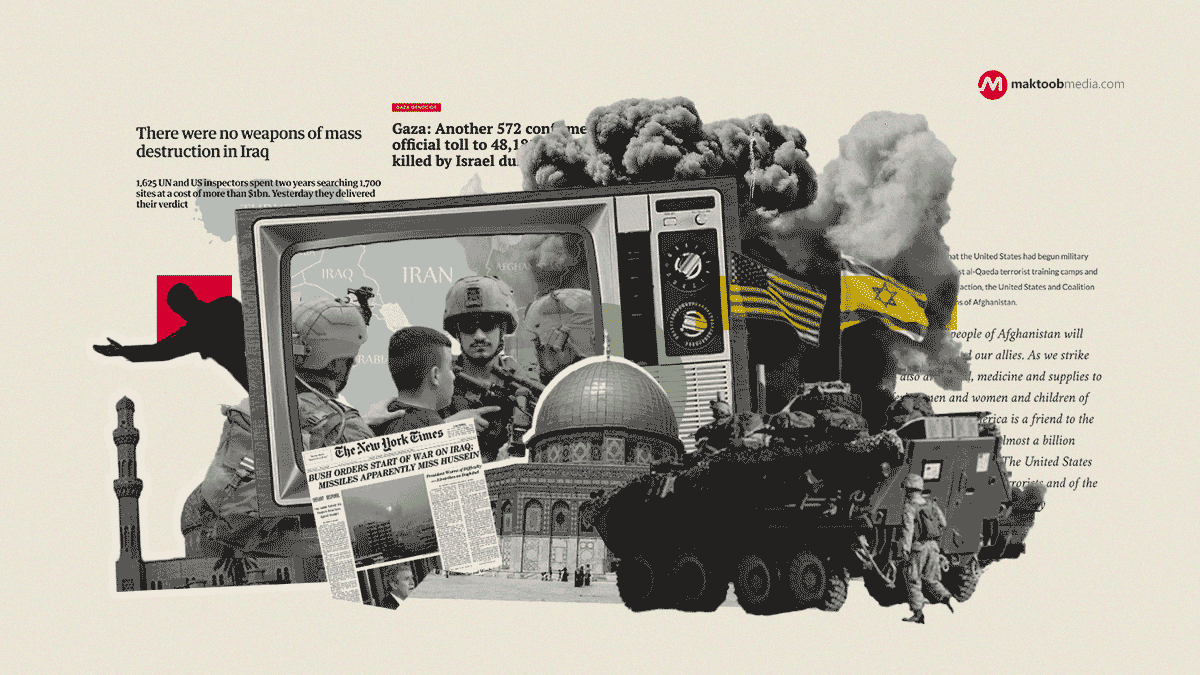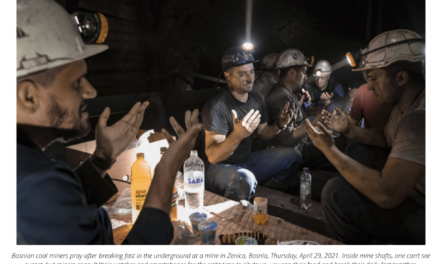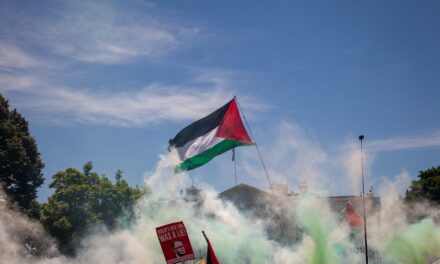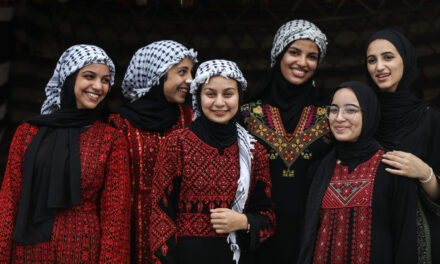George Orwell, a prophet of linguistic clarity in a world increasingly shrouded in doublespeak, understood the insidious power of language to shape perception and justify atrocity. In his seminal essay “Politics and the English Language,” Orwell warned against the manipulative power of language, cautioning that euphemisms and vague rhetoric could mask brutality and legitimize oppression.
He railed against the “euphemism, question-begging and sheer cloudy vagueness” that masked political intentions, turning morally reprehensible acts into palatable policy. How prescient those words seem today, as we witness the continued deployment of “othering” – the systematic dehumanization of entire populations – to fuel conflict and maintain power imbalances across the globe, most notably in the Middle East.
In Syria, Yemen, and Palestine, complex realities are routinely flattened into black-and-white narratives that serve political agendas rather than truth. We in the media must shoulder much of the blame. Too often, we have opted for sensationalism over nuance, parroting official lines instead of challenging them.
The 2003 invasion of Iraq stands as a stark illustration of how “othering” can be weaponized to devastating effect. In the lead-up to the war, the Bush administration constructed a narrative that reduced Iraq’s complex society to a simplistic binary: good versus evil. Saddam Hussein became the archetypal villain, a convenient symbol upon which all fears and anxieties could be projected.
The American media played a crucial role in this process. Embedded reporters, closely aligned with US military forces, often presented sanitized and triumphalist accounts of the invasion, reinforcing official narratives rather than challenging them.
Studies conducted by Fairness and Accuracy In Reporting revealed that nearly two-thirds of network news guests supported military intervention, while anti-war voices were marginalized. This deliberate reductionism served to silence critical voices questioning the legitimacy of invasion, the absence of credible evidence regarding weapons of mass destruction (WMDs), and the potential humanitarian catastrophe that military intervention would inevitably unleash.
A University of Maryland study found that 57% of mainstream media viewers believed Iraq had given substantial support to Al-Qaeda or was directly involved in the 9/11 attacks. Even more troubling, 69% believed Saddam Hussein was personally involved in 9/11. While US networks adopted the Pentagon’s “Operation Iraqi Freedom” branding, other global media outlets like the Canadian CBC used “War on Iraq,” and Arab networks described it as an “invasion” and “occupation.”
Dissenting voices were marginalized or labeled unpatriotic, effectively silencing critical debate. This “othering” of Iraqis, this reduction of an entire people to a caricature of villainy, was a deliberate strategy to silence dissent and manufacture consent.
It allowed policymakers to bypass critical questions about the legitimacy of the war, the lack of evidence of weapons of mass destruction, and the potential for destabilizing the region. The result was a tragedy of immense proportions, a war that claimed hundreds of thousands of lives, displaced millions, and continues to reverberate across the Middle East.
Yet Iraq is far from unique in experiencing the destructive consequences of linguistic manipulation and “othering.” Across the Middle East—and indeed globally—this tactic continues to be employed to justify violence and entrench power dynamics.
In Syria, the Assad regime systematically “othered” its opponents, labeling them as terrorists and extremists to justify its brutal crackdown on dissent. This rhetorical strategy justified atrocities against civilians while obscuring legitimate grievances and aspirations for political reform.
Similarly, in Yemen, the Houthis have been cast by Saudi Arabia and its allies as mere proxies for Iranian ambitions. This oversimplification ignores Yemen’s internal complexities and legitimizes a brutal conflict that has driven millions to starvation.
Palestinians are frequently depicted in international discourse as inherently violent or unwilling to accept peace initiatives. Such portrayals erase historical context—the decades-long occupation and systemic dispossession Palestinians have endured—and justify ongoing oppression under the guise of “security” or “self-defense.” By denying Palestinians their humanity through language that frames them as perpetual aggressors or irrational actors unwilling to seek peace, Israel’s policies of occupation, settlement expansion, and military operations become more palatable to international audiences.
“Othering” is not confined to any single conflict or region; rather, it is a pervasive strategy employed globally to justify violence and maintain power imbalances. At its core lies a troubling psychological mechanism: when we strip others of their humanity through language—when we label them terrorists, fanatics, or savages—we create an environment in which empathy is impossible. Once dehumanized, these populations become expendable; their suffering becomes invisible or justified.
This phenomenon is exacerbated by international arms sales that fuel regional conflicts. The Middle East has long been a lucrative market for weapons manufacturers from major powers like the United States and European nations. Arms sales not only prolong conflicts but also encourage further militarization by creating security dilemmas where rival states feel compelled to arm themselves defensively in response to perceived threats from neighbors. The resulting arms race perpetuates instability and violence while enriching external actors who profit from perpetual war.
To break free from this destructive cycle requires confronting our complicity in perpetuating narratives that dehumanize entire populations. It demands critical engagement with media portrayals that reinforce simplistic binaries rather than illuminating complexities. It necessitates challenging policymakers who exploit fear and prejudice for political gain.
We must recognize that the language we use to describe conflict zones is not neutral. It shapes our perceptions, influences our policies, and ultimately determines the fate of millions of people. We must challenge the simplistic narratives that pit “us” against “them,” recognizing the shared humanity that binds us all.
The media, in particular, has a responsibility to resist the temptation to perpetuate these harmful stereotypes. We must amplify the voices of those who are “othered,” providing platforms for them to share their stories, challenge dominant narratives, and reclaim their humanity. We must hold power to account, exposing the manipulation and propaganda that fuel conflict and perpetuate injustice.
Overcoming “othering” is a deeply personal and collective journey that begins with a genuine attempt to understand and empathize with those we perceive as different. It requires creating spaces where dialogue can flourish, not despite our differences, but because of them. This isn’t about glossing over real conflicts or ignoring deep-seated grievances; it’s about nurturing an environment where mutual understanding can take root, replacing fear and suspicion with curiosity and openness.
In places like Iraq, Palestine, Syria, and Yemen, where narratives of division have fueled cycles of violence for far too long, this approach is not just idealistic—it is essential. We must actively challenge the stories that dehumanize entire populations.
To move beyond “othering,” we need to see the individual behind the label, to recognize that vulnerability is a universal human experience, and to understand that diversity, when celebrated, becomes a source of strength rather than division.
Eighty years after Orwell’s call for linguistic integrity, his warnings remain strikingly relevant. They remind us that language holds immense power—it shapes perceptions, which in turn shape policies, ultimately determining the lives that are either preserved or lost. Until we confront our role in sustaining harmful narratives, whether through careless rhetoric or, worse, deliberate manipulation, we will remain ensnared in cycles of fear-driven division.
Kasturi is an Indian journalist specializing in Palestine, contributing to reputed news organizations on issues related to Palestinian affairs, politics, human rights violations, and the broader geopolitical dynamics shaping the region. Her work focuses on the daily realities of occupation, resistance, and cultural resilience in Palestine. Previously, she worked at the Embassy of Georgia in India.














